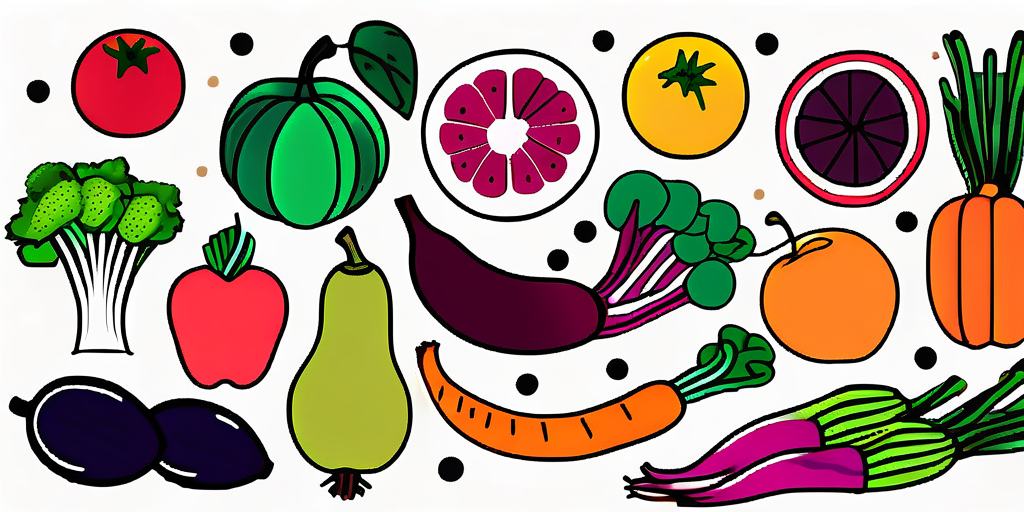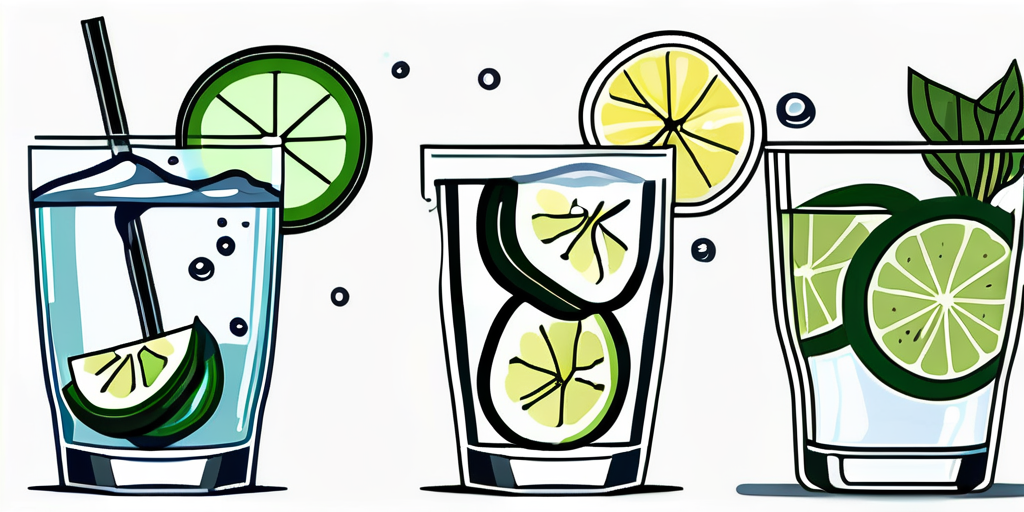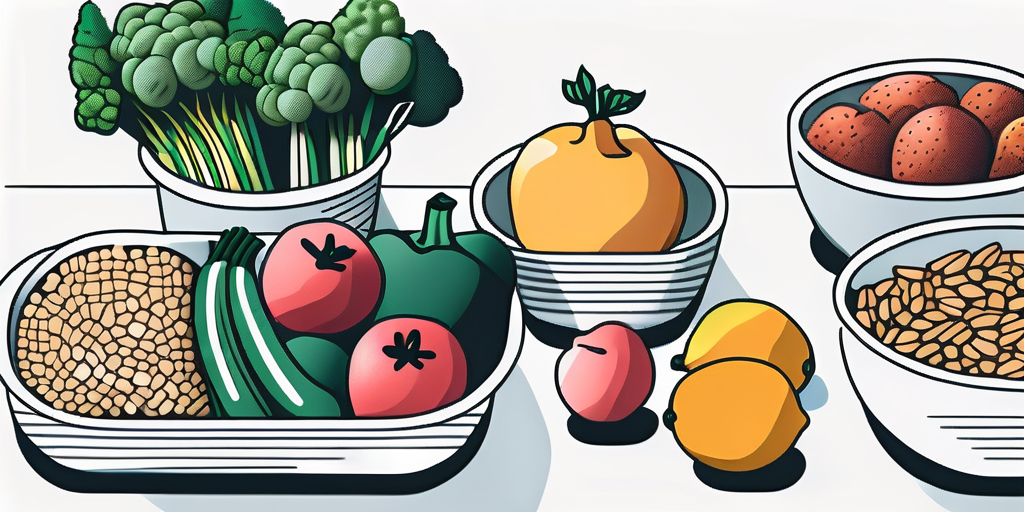In today's society, maintaining a healthy weight is a top priority for many individuals. With so much information available, it can be overwhelming to navigate the world of weight loss and nutrition. That's why we've compiled this comprehensive guide to help you understand the best foods for weight loss and achieve your goals in a sustainable manner.
Understanding Weight Loss and Nutrition
Weight loss is a complex process that involves a combination of factors, including diet, exercise, and lifestyle choices. While exercise is undoubtedly important, it's vital to remember that nutrition plays a central role in achieving and maintaining a healthy weight. By fueling your body with the right foods, you can optimize your weight loss efforts and enhance your overall well-being.
The Role of Diet in Weight Loss
When it comes to weight loss, diet is often considered the key component. While there are many diets and approaches out there, it's essential to choose a sustainable and balanced approach that suits your individual needs. Rather than focusing on restrictive fad diets, opt for a long-term lifestyle change that incorporates a variety of nutrient-dense foods.
Nutritional Needs for Healthy Weight Loss
To achieve healthy weight loss, it's crucial to understand your nutritional needs. The body requires a combination of macronutrients (carbohydrates, proteins, and fats) and micronutrients (vitamins and minerals) to function optimally. By ensuring that your diet is well-balanced and includes a range of foods, you can meet these needs and support your weight loss journey.
The Importance of a Balanced Diet
Achieving a healthy weight is not solely about reducing calories - it's about providing your body with the essential nutrients it needs to thrive. A balanced diet is one that includes a variety of foods from all food groups, ensuring that you obtain a wide range of nutrients. Emphasizing whole, minimally processed foods will help you meet your weight loss goals while nourishing your body.
When it comes to weight loss, there are various factors to consider. One of the key aspects is the role of macronutrients in our diet. Macronutrients, including carbohydrates, proteins, and fats, are the primary sources of energy for the body. However, not all macronutrients are created equal. Focusing on the quality and quantity of these macronutrients is essential for weight loss.
Protein is an important macronutrient when it comes to weight loss. Incorporating lean sources of protein, such as chicken, fish, tofu, or beans, into your meals can support satiety and promote muscle growth. Protein has a higher thermic effect compared to carbohydrates and fats, meaning that it requires more energy to digest and absorb. This can enhance fat burning and contribute to weight loss.
Carbohydrates are another macronutrient that plays a significant role in weight management. Opting for complex carbohydrates, such as whole grains, legumes, and vegetables, instead of refined carbohydrates can help regulate blood sugar levels and provide a steady release of energy. This can prevent spikes in blood sugar and cravings, making it easier to maintain a calorie deficit and achieve weight loss.
Healthy fats are also essential for a balanced diet and weight loss. Including sources of healthy fats, such as avocados, nuts, seeds, and olive oil, can help promote satiety and support nutrient absorption. Fats are more calorie-dense compared to protein and carbohydrates, so it's important to consume them in moderation. However, incorporating them into your meals can help you feel satisfied and prevent overeating.
While macronutrients provide energy, micronutrients are equally important for overall health and weight management. Vitamins, minerals, and antioxidants found in fruits, vegetables, and whole grains play a crucial role in supporting bodily functions and maintaining a healthy metabolism. By incorporating a wide variety of colorful foods into your diet, you can ensure you're getting an adequate supply of these essential nutrients.
In addition to providing essential nutrients, a balanced diet can also have other positive effects on your health. It can improve digestion, boost your immune system, and enhance your mood. When you nourish your body with a variety of foods, you're not only supporting weight loss but also promoting overall well-being.
It's important to note that achieving a balanced diet is not about strict rules or deprivation. It's about finding a sustainable approach that works for you. Listening to your body's hunger and fullness cues, practicing mindful eating, and making gradual changes to your eating habits can help you achieve long-term success in maintaining a balanced diet and a healthy weight.
Top Foods for Weight Loss
When it comes to weight loss, some foods are more beneficial than others. Incorporating the following categories of foods into your diet can help you shed those extra pounds while nourishing your body:

Fruits and Vegetables for Weight Loss
Fruits and vegetables are packed with vitamins, minerals, and fiber, making them an excellent choice for weight loss. Their high fiber content promotes satiety while their low-calorie density allows you to consume larger portions without consuming excessive calories. Incorporate a colorful array of fruits and vegetables into each meal to reap their benefits.
For example, including leafy greens like spinach and kale in your diet can provide you with essential nutrients like iron and calcium. These greens are not only low in calories but also rich in antioxidants, which can help protect your cells from damage caused by harmful free radicals.
Furthermore, fruits like berries are not only delicious but also packed with antioxidants and fiber. Blueberries, for instance, are known for their high levels of antioxidants, which have been linked to improved brain function and reduced risk of chronic diseases.
Proteins for Weight Loss
Protein is essential for weight loss as it promotes satiety, supports muscle growth, and increases your metabolic rate. Opt for lean protein sources such as skinless poultry, fish, legumes, and tofu. Including protein-rich foods in each meal can help you feel fuller for longer and prevent overeating.
When it comes to fish, salmon is an excellent choice. It is not only a great source of protein but also rich in omega-3 fatty acids, which have been shown to reduce inflammation and promote heart health. Additionally, legumes like lentils and chickpeas are not only high in protein but also packed with fiber, making them a satisfying and nutritious addition to your weight loss diet.
Whole Grains for Weight Loss
Unlike refined grains, which are stripped of their nutrients, whole grains are a great source of fiber, vitamins, and minerals. Additionally, their complex carbohydrates are digested slowly, providing a steady source of energy and preventing blood sugar spikes. Incorporate whole grains such as quinoa, brown rice, and whole wheat bread into your diet to support your weight loss efforts.
Quinoa, for example, is a complete protein source and contains all nine essential amino acids. It is also rich in fiber, iron, and magnesium. Brown rice, on the other hand, is a whole grain that is high in fiber and provides essential nutrients like selenium and manganese. Including these whole grains in your meals not only adds variety but also boosts your weight loss journey.
In conclusion, when it comes to weight loss, incorporating a variety of fruits, vegetables, lean proteins, and whole grains into your diet is key. These foods not only provide essential nutrients but also promote satiety, support muscle growth, and help maintain a healthy metabolic rate. Remember to make your meals colorful and flavorful by including a diverse range of fruits, vegetables, and whole foods.
The Role of Hydration in Weight Loss
Staying adequately hydrated is often overlooked but plays a crucial role in weight loss. Water is involved in numerous bodily functions and can boost your metabolism, suppress your appetite, and prevent overeating. Aim to drink at least eight glasses of water per day, or more if you're physically active.

When it comes to weight loss, water is your best friend. Not only does it have zero calories, but it also helps your body burn calories more efficiently. Drinking water before meals can help reduce calorie intake, as it promotes a feeling of fullness. This means you're less likely to overeat and consume excess calories. So, the next time you sit down for a meal, make sure to have a glass of water by your side.
But water's benefits don't stop there. By replacing sugar-sweetened beverages such as soda and juices with water, you can significantly reduce your daily calorie intake. Think about it - a can of soda can contain around 150 calories, while a glass of orange juice can have over 100 calories. By swapping these sugary drinks for water, you're cutting out unnecessary calories and making a positive impact on your weight loss journey.
Water and Weight Loss
Drinking water is not only beneficial for weight loss, but it also has a myriad of other health benefits. Water helps your body flush out toxins, supports healthy digestion, and keeps your skin looking radiant. It is essential for the proper functioning of your organs and helps maintain overall bodily balance.
So, how much water should you be drinking? The general recommendation is to aim for at least eight glasses of water per day. However, this can vary depending on factors such as your activity level, climate, and overall health. If you're physically active or live in a hot climate, you may need to increase your water intake to stay properly hydrated.
One way to ensure you're getting enough water throughout the day is to carry a reusable water bottle with you. This way, you'll always have a reminder to stay hydrated, whether you're at work, running errands, or hitting the gym. Plus, using a reusable water bottle is an eco-friendly choice that helps reduce plastic waste.
Other Hydrating Beverages for Weight Loss
While water is the best choice for hydration, there are other beverages that can support your weight loss journey. Herbal teas, for example, are a great option. Not only do they provide hydration, but they also offer various health benefits depending on the herbs used. Some herbal teas, like green tea, are known to boost metabolism and aid in weight loss.
If you're looking for a little more flavor in your drinks, infused water can be a refreshing and hydrating choice. You can add slices of fruits, such as lemon, cucumber, or berries, to your water for a hint of natural flavor. Just be mindful of added sugars or artificial sweeteners in packaged beverages, as they can hinder your weight loss efforts.
In conclusion, staying hydrated is essential for weight loss and overall well-being. Water is the best choice for hydration, as it has zero calories and numerous health benefits. By drinking water before meals, replacing sugary drinks, and incorporating other hydrating beverages into your routine, you can support your weight loss journey and improve your overall health.
Meal Planning for Weight Loss
Meal planning is a valuable tool that can help you stay on track with your weight loss goals. By taking the time to plan your meals and snacks, you can ensure that you're making nutritious choices and avoid impulsive, unhealthy options.

When it comes to weight loss, it's not just about the types of foods you eat, but also about portion control. Portion control is a fundamental aspect of weight loss. It's important to be mindful of the quantity of food you consume, as even healthy choices can lead to weight gain if eaten in excess.
One way to practice portion control is by using measuring cups or a food scale to accurately measure your ingredients. This can give you a better understanding of what a proper portion size looks like. Additionally, practicing mindful eating can help you develop a better relationship with food and prevent overeating.
Portion Control and Weight Loss
Portion control is a fundamental aspect of weight loss. It's important to be mindful of the quantity of food you consume, as even healthy choices can lead to weight gain if eaten in excess. Use measuring cups, weigh your ingredients, and practice mindful eating to develop a better understanding of portion sizes.
Another helpful tip for portion control is to fill up on low-calorie, high-fiber foods. These foods can help you feel fuller for longer, preventing the urge to overeat. Examples of such foods include fruits, vegetables, whole grains, and legumes.
Furthermore, it's important to pay attention to the quality of the calories you consume. While it's true that weight loss ultimately comes down to a calorie deficit, focusing on nutrient-dense foods can help support your overall health and well-being. Opt for lean proteins, healthy fats, and a variety of colorful fruits and vegetables to ensure you're getting a wide range of essential nutrients.
Timing of Meals and Snacks for Weight Loss
While the timing of meals and snacks may vary depending on your individual preferences and lifestyle, some general guidelines can support weight loss efforts. Aim to have regular, balanced meals throughout the day to keep your metabolism running efficiently and prevent excessive hunger.
It's often recommended to eat smaller, more frequent meals rather than a few large meals. This can help keep your blood sugar levels stable and prevent energy crashes. Additionally, incorporating healthy snacks can prevent overeating during meals and provide sustained energy.
When planning your meals and snacks, consider including a combination of macronutrients. This means including a balance of carbohydrates, proteins, and fats in each meal to help keep you satisfied and provide a steady release of energy throughout the day.
In conclusion, achieving and maintaining a healthy weight requires a multifaceted approach that includes nutrition, exercise, and lifestyle choices. By understanding the role of diet in weight loss and incorporating the best foods into your meals, you can maximize your results and improve your overall well-being. Remember, the journey to weight loss is unique to each individual, so listen to your body, make informed choices, and embrace sustainable changes that work for you.




